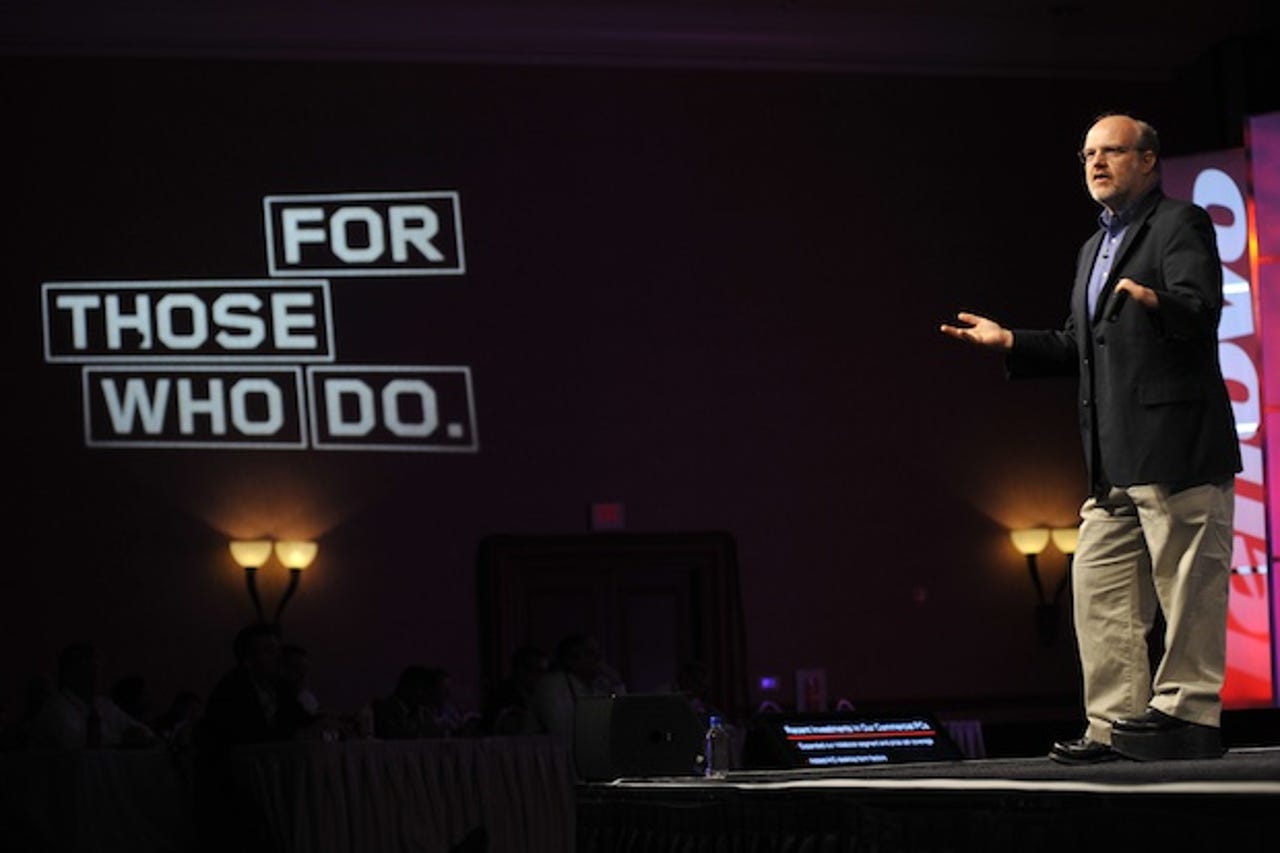Talking tablets, and more, with Lenovo

There is much talk of a 'post-PC' world in which smartphones, tablets and other digital devices take centre stage. Be that as it may, the PC-centred world is currently suiting Lenovo just fine: the company has recently overtaken Dell to take the number-two spot in worldwide PC sales behind HP. I talked yesterday with Peter Hortensius, president of Lenovo's global product group, who noted that "certain of our competition seem confused" about their strategy — a clear reference to HP's ongoing internal debate about whether to spin off its PC division. However, rather than spend time gloating over the opposition's "missteps", Hortensius preferred to concentrate on extolling his company's "well defined" product portfolio.

That portfolio remains firmly centered on notebooks — primarily the venerable, but still innovative, ThinkPad line that Lenovo inherited from IBM, but also now including a growing range of consumer-focused IdeaPads. Lenovo's figures show that notebooks account for nearly 60 percent of the company's sales, followed by desktops at just over 34 percent and 'mobile internet and digital home' (MIDH) products — a new business group created in January 2011 — at around 4 percent.
'Consumerisation' — the trend for employees to bring their own devices (be they notebooks, tablets or smartphones) to work — is an increasing feature of business IT, and Hortensius was touting a device that's particularly pertinent in this respect: the slim, metallic IdeaPad U300s, which is among the first wave of 'ultrabooks' and a system that many a mobile professional would be happy to carry on a daily basis.
Ultrabooks — which have the considerable impetus of $300 million of Intel's cash behind them — are designed to deliver fast boot times, long battery life, fast time-to-sleep and long standby times, along with mainstream performance levels in a highly portable form factor. Asked to identify stand-out features in Lenovo's ultrabooks compared to those from competitors such as Asus, Hortensius pointed to the company's Enhanced Experience for Windows 7 program, which includes features such as RapidBoot and, on SSD-equipped systems, RapidDrive technology (check out this video for an unusual demo).
The shadow of Apple's successful MacBook Air hangs heavy over Windows-based ultrabooks, and when I asked Hortensius whether, given Apple's recent readiness to reach for its lawyers, he was at all worried about litigation over Air-like competitors, he gave an emphatic "No", adding: "our IdeaPad U300s doesn't look like a MacBook Air". For the record, here they are side by side:
In business notebook-land, Lenovo's flagship ultraportable remains the ThinkPad X1, released earlier this year. It's equipped with a tough Gorilla Glass screen and a sturdier build than most of its ilk — a key difference between the ThinkPad and IdeaPad ranges that Hortensius highlighted by saying: "I demonstrate this [the X1] by throwing it to the ground and standing on it — I wouldn't do that with the [U300s] ultrabook". He does, too.
Turning to the tablet market, Hortensius acknowledged the iPad's success in the consumer space as a media-consumption device, and summed up the state of its growing competition by saying: "the hardware is there, but the software needs more tablet optimisation". Lenovo's offerings here are twofold: the Nvidia Tegra 2-based IdeaPad K1 running Android 3.1 (Honeycomb) and the forthcoming Intel-based IdeaPad P1 running Windows 7. We can expect Windows 8 on Lenovo's x86 devices in due course, Hortensius said, but he was less forthcoming when asked about the prospects for Microsoft's next OS on the company's ARM-based tablets.
One of which is Lenovo's recently released business-friendly ThinkPad Tablet, which, like the IdeaPad K1, runs Android 3.1 on an Nvidia Tegra 2. This sturdy 10.1in. device comes with a tough Gorilla Glass screen and options including mobile broadband, a digital pen, a docking station and a neat folio case that incorporates a keyboard. When I suggested that a 'hybrid' device like the ThinkPad Tablet with the keyboard case (or the Asus Eee Pad Transformer) might be an ideal main system for a mobile professional, Hortensius pointed out the inevitable compromises involved: "when you make a good tablet, the keyboard experience is compromised". For Lenovo's product boss, the clamshell notebook remains the mobile pro's primary computer.
Returning to the subject of lawyers, I asked Hortensius for his thoughts on the current explosion of intellectual property litigation (see the Apple-Samsung saga), and got a politician's answer: "The PC industry has been good at setting standards and putting cross-licensing agreements in place", he said. "Genuine inventions should be protected and rewarded — but frivolous lawsuits merely stifle innovation".
There's a lot to look forward to in the next year or so, particularly in mobile computing: the advent of Windows 8 on both x86 and ARM platforms, Google and Intel teaming up to optimise Android for x86, the rollout of new generations of ever better-connected, more capable and longer-lasting notebooks, tablets and smartphones. Little wonder that Hortensius predicts "interesting times" ahead.